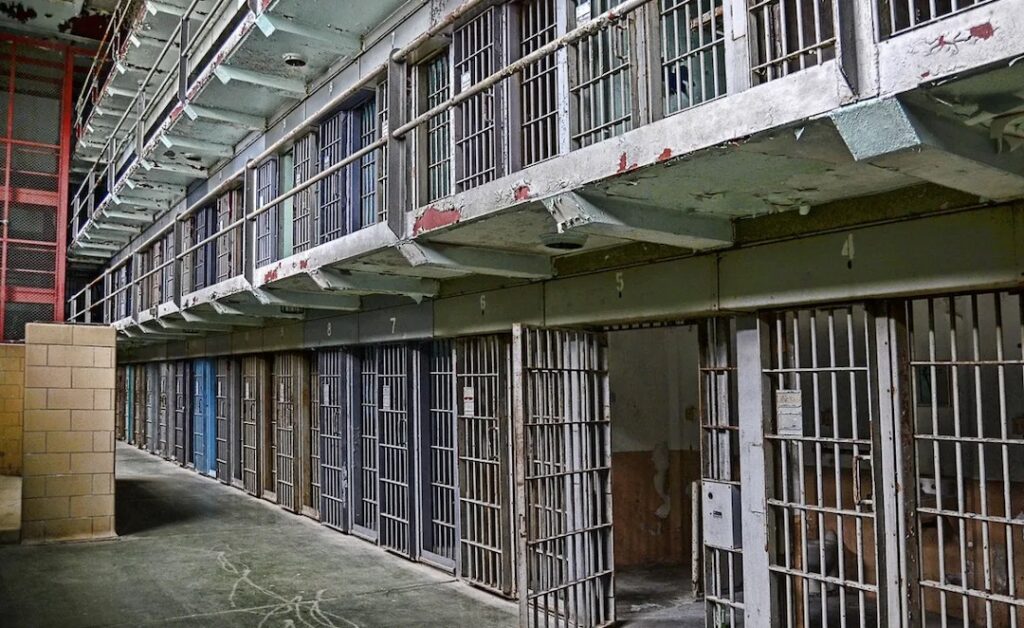The History of Prison In Yorubaland started with what is known as Tubu, a word synonymous with prison. Prior to the use of Tubu , the Yoruba People did not keep or kill prisoners instead, they had a tradition of banishing offenders and criminals from the village including their movable properties or sometimes with their family members out of the village.
However, when the series of civil wars that took place in Yorubaland in the 18th century began, several kingdoms began building confines to accommodate their prisoners of war. These confines became known as ‘Tubu”. Some historical accounts suggest that it was the arrival of the European Slave traders in the previous century, that prompted the idea. It is imperative to note that these Slave traders built holes and confinement in order to keep slaves and transport them to Europe.
The Use of “Tubu” was such a widespread practice that every chief had his tubu for criminals. The offences for which an offender could be so held ranged from drunkenness, disobedience etc. The ogboni society also held offenders in their prisons for offences such as ritual murder, witchcraft, notorious burglary.
The History of the prison in Yorubaland and Nigeria at large is highly undocumented. However, there are a few available accounts that are highly informative but are unquestionably dated. Before diving further into these accounts, it is imperative that we consider the notion of Justice and imprisonment in Yorubaland
The notion of Justice and imprisonment in Yorubaland
Prior to colonialism, every African Society had its own unique conception of law and justice. These laws were not formulated with rigid rules but consisted of a number of flexible principles or norms that directed the administration of justice. They were derived directly from the culture of the people, and therefore, enjoyed their respect and support
In order to have proper insight into the history of prison in Yorubaland, It is important that we take a brief look at the prevailing notions of law and justice at that time. The Yoruba People have a long-standing tradition of issues of law and justice. They frown at wrongdoings and impropriety of manners and thus award blame and punishment of offenses adjudged to be inimical to the progress of society and the development of the legal norms.
These punishments correspond to the offenses carried out by the offenders. The worst offense carries the severest penalty. Hence no offender is penalized without committing an offense. Examples of such punishment include banishment in the case of murder execution by stoning to death in the case of witchcraft and public humiliation in cases of adultery and stealing. The use of imprisonment was however rare.
Some studies suggested that the use of prison system emerged when the Yoruba people became conscious of their political environment. During this period the yoruba Kingdom were governed by constituted authority that controlled the affairs of the state and ensure that offenders were servely punished to deter other from such crimes. Fundamental acts which were considered inimical were punished through imprisonment. Exmaple is an attempt to overthrow the constituted authority.
Read More:
- 10 Most Dangerous Female Prisons In The World
- The History of Broadcasting In Nigeria
- How Ilorin Fell Under The Rule Of The Fulani Caliphate
Nigeria Prison Service in the Colonial Era
The Nigeria Prison Service like many other agencies in Nigeria, was established by the colonial administration and played a significant role in pursuing the primary objectives of colonialism. The declaration of Lagos as a crown colony in 1861 marked the beginning of the institution of formal machinery of governance. At this stage the preoccupation of the colonial government was to protect legitimate trade, guarantee the profit of British merchants as well as guarantee the activities of the missionaries.
To this end, by 1861, the acting governor of the Lagos colony and who was then a prominent British merchant in Lagos, formed a Police Force of about 25 constables. This was followed in 1863 by the establishment in Lagos of four courts: a Police court to resolve petty disputes, a criminal court to try the more serious cases, a slave court to try cases arising from the efforts to abolish the trade in slaves and a commercial court to resolve disputes among merchants and traders.
The functioning of these courts and the police in that colonial setting necessarily meant that prison was needed to complete the system. And it was not long in coming for in 1872, the Broad Street prison was established with an initial inmate capacity of 300. There are also eveidences that points to the establishment of prison in the Niger Delta during this period.
The the establishment of British protectorate towards the end of the 19th century necessitated the establishment of the prisons as the last link in the Criminal Justice System. Thus by 1910, there already were prisons in Degema, Calabar, Onitsha, Benin, Ibadan, Sapele, Jebba and Lokoja. Instead of reforms the prisoners were in the main used for public works for the colonial administration.
Nigeria Prison Service in Post Colonial Era
The abolition of Native Authority prisons in 1968 and the subsequent unification of the Prisons Service in Nigeria therefore marked the beginning of a unified Nigerian Prison service. Prior to this, the prisons in the North were under the general supervision of the Northern Inspector General of Police who was ex-officio Director of Prisons. In the same vain the Director of Prisons was in charge of the prisons in the south.
Although Native Authority prisons were abolished with effect from 1st April, 1968. Tyhe abolishment did not take effect until 1971,when the government released a white paper on the reorganization of the prisons. It was followed in 1972 by Decree No.9 of 1972 which spelt out the goals and orientation of the Nigerian Prisons Service.
The Prisons was charged with taking custody of those legally detained, identifying causes of their behaviour and retraining them to become useful citizens in the society. This created the need to employ skilled manpower. To this end between 1974 and 1980 a group of officers, mostly pivotal teachers was recruited to take on adjustment-related programmes and rehabilitation of prisoners. Between 1972 and 1974 over three hundred graduates were recruited into the Service to see to the day to day running of the Prisons.


